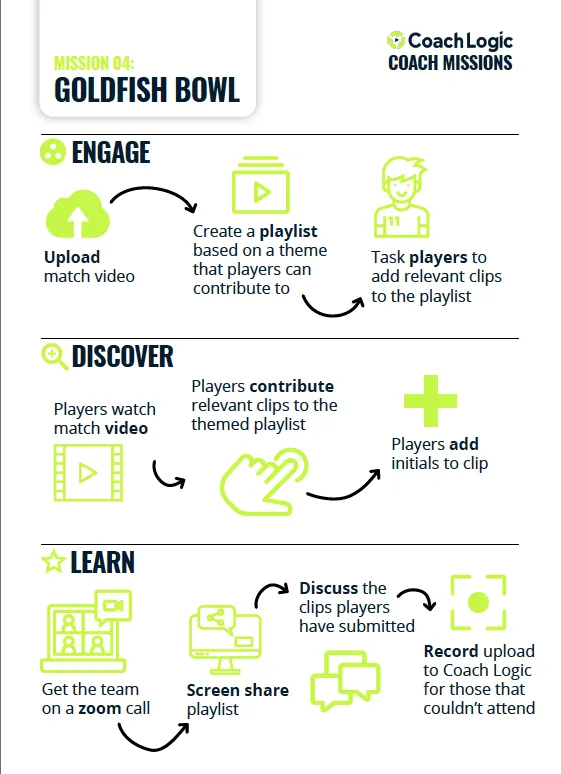You don’t know what you don’t know, but do you know what the players know or don’t know?
And would that be helpful?
We think so!
One of the major benefits of providing the players with the chance to discover whilst watching match footage, is it’s another way to get insights into their context and knowledge.
What did they see, think, and feel during a sporting performance?
- They tried something different in the game. What was their sense of momentum and how the game was going?
- They look a bit out of position in defence. What would have helped them stay more connected?
- That was great attacking play. What did they see that I can’t from the video? Remember the pass Messi made against theNetherlands in the World Cup Semi-final, which barely looked like it was on even from the spider cam?
We’re not suggesting the introduction for sports exams, yet at the same time when performing their sport players will be tested in many ways, so it’s a great opportunity to see where their knowledge lies.
The beauty of sport is that there are often multiple answers to the same question, so adding the context of the player is vital. It’s also unlikely that the exact same situation will present itself again, so extracting some learning and building on knowledge will only help noticing when a similar situation presents itself.
Would you learn more about the game and the players by asking these questions?
- What did you see when you attempted that pass?
- What might the outcome have been, if you took option “B” instead of “A”?
- What had gone on previously that made you respond in that way?
As I say, there’s no right or wrong answer to these questions, it’s simply adding their context to what you saw at the time and looking back at the video.

What we love about Coach Logic is that conversations can be started by players and coaches. If you’ve engaged the players, they will be curious, and no doubt have questions before you even prompt them.
Last time I shared the Superpowers mission, and it feels like our “Goldfish Bowl” mission is relevant here. I like it because the coach can guide the learning and focus by picking a theme for the players to focus on, but it is then opened to the players to add the content. What a brilliant way to gain a level of understanding, from the players perspective, around the chosen theme.
It's not about being right or wrong here, but a great way to get a feel for whether you are all on the same page. This can then have a real impact on what needs communicated to who.
This is facilitated by setting the players the individual task of adding clips, but then bringing everyone together for a discussion. Zoom is an option here, but perhaps there’s even more value to doing it in person when the opportunity affords. Most of the teams using Coach Logic as their video analysis software are not full-time, so getting together outside of regular training is not a given and we don’t want to eat into time on the field unnecessarily.
I would also suggest that this can be done in small groups rather than whole squad sessions. It can be done by position, or it might be interesting to do it cross-positional to give people an increased understanding of the different roles in the game.
Remember the (stolen!) quote of “show me beats tell me”? It feels relevant here too.
As I also said in part 1, people are motivated by having choice, a feeling of progress, and a sense of belonging. Engaging your players in video analysis in the ways described will tick these boxes.
If you’d like to find out more about how Coach Logic can motivate your squad to develop individually and collectively, please get in touch.
